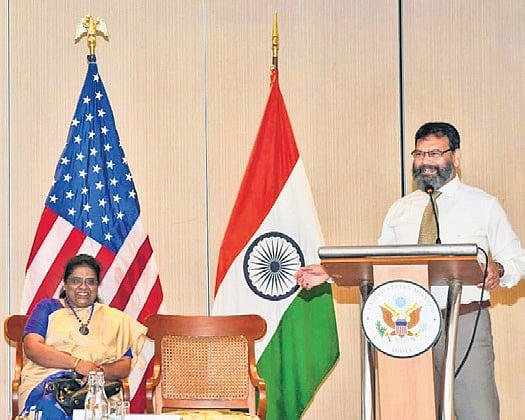As the Indo-Pacific becomes the axis of global competition, Hodges’s remark positions India not as a participant, but as a necessary partner.
CHENNAI (India CSR): India is no longer just a stakeholder in the Indo-Pacific—it is “an irreplaceable partner,” said US Consul General Chris Hodges on Thursday, stressing that New Delhi’s growing role is reshaping governance, rule of law, and security across the vast maritime region.
India at the Centre of Power Shifts
Speaking at a seminar on maritime security at the University of Madras, Hodges underlined that the Indo-Pacific is witnessing rapid geopolitical churn. He said India’s presence is not symbolic but structural—anchoring multilateral cooperation, ensuring freedom of navigation, and strengthening institutions that define stability.
He pointed to India’s active role in the Quad, its track record in humanitarian assistance, and its ability to bridge North–South divides as evidence of its expanding influence. “India’s contributions are not episodic. They are systemic,” Hodges observed.
Beyond Strategy, a Civilisational Commitment
What makes India’s rise striking, Hodges suggested, is not only its economic and military weight but also its civilisational commitment to the rule of law. “A democracy of this scale playing by the rules changes the game,” he noted, hinting at how India’s choices influence smaller nations looking for reliable partners amid great-power rivalry.
Call for Collaborative Security
Rear Admiral Satish Shenai, Flag Officer Commanding Tamil Nadu and Puducherry Naval Area, echoed this sentiment, warning that no single country can secure the Indo-Pacific alone. “Only collaboration can ensure stability,” he said, stressing the need for integrated naval cooperation, intelligence-sharing, and technological adaptation.
Technology and Trade at the Forefront
Panels at the seminar debated the intersections of trade, power dynamics, and disruptive technologies like AI and unmanned systems in maritime frontiers. Experts argued that the Indo-Pacific will be as much about data and digital seas as about shipping lanes.
The Thought Provoking Undercurrent
The event was not just about regional security. It raised deeper questions: Can India balance its civilisational ethos with hard-nosed geopolitics? Will the Indo-Pacific be shaped by military pacts or by cooperative governance frameworks? And most importantly, does India see itself as a rule-setter in the decades ahead?
As the Indo-Pacific becomes the axis of global competition, Hodges’s remark positions India not as a participant, but as a necessary partner. The unanswered question is: Will India embrace that destiny—or resist being boxed into it?
(India CSR)







